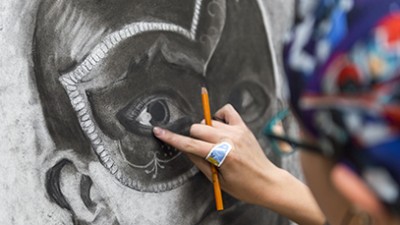
William Snyder
Professor
William Snyder
Professor
Education
BS, Rochester Institute of Technology
Select Scholarship
Currently Teaching
In the News
-
October 13, 2023

New site celebrates Pulitzer Prize legacy of alumni
RIT photojournalism alumni have a strong legacy of journalistic excellence, as recognized by the growing number of graduates receiving Pulitzer Prize honors. Their accomplishments are showcased on a new RIT’s Pulitzer Legacy website.
-
May 4, 2023

Photojournalism senior blends passions for storytelling and the outdoors
Marielle Scott, a fourth-year photojournalism student, has a multimedia portfolio that tells stories about rock climbing, the Adirondacks hiking scene, rodeos, Boy Scouts, beekeeping, and much more.
-
December 6, 2022

After coast-to-coast career move, alumna works on prominent documentaries
Dominique Hessert Owens ’17 (photojournalism) spearheaded the visual effects efforts for Good Night Oppy, a true story about an amazing journey by two Mars rovers that is receiving Oscar buzz.
Featured Work
Senior Portfolio
Sarah Priestap
Summer High School Intro to Photojournalism Workshop
Attendees
RIT Summer High School Photojournalism Workshop 2013
Hemlock Little Worlds Fair







